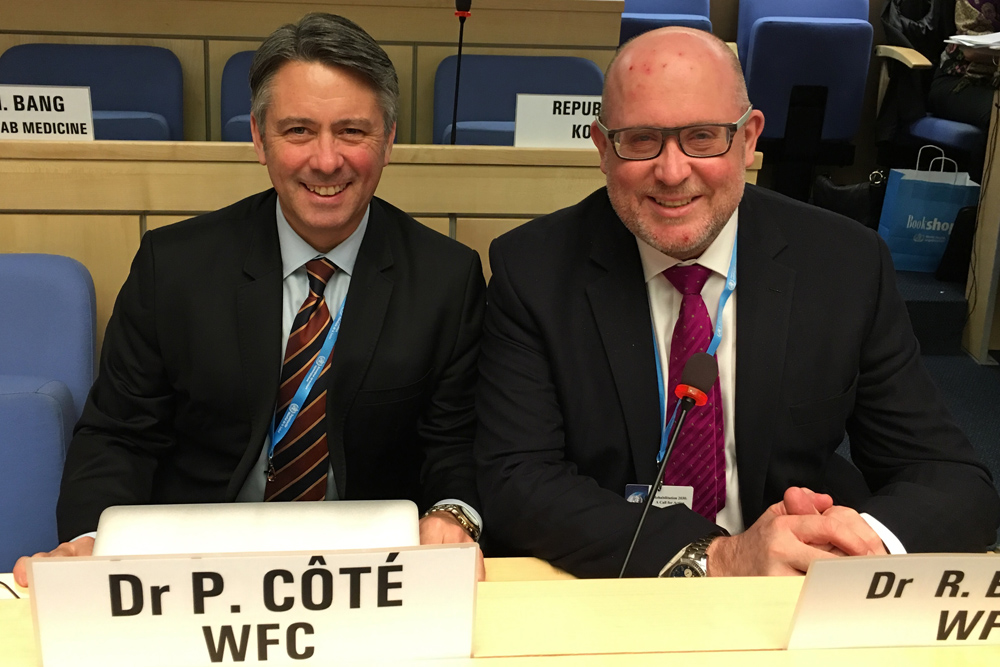World Health Organization backs new philosophy on disability and rehabilitation
Dr. Pierre Côté attends historic WHO meeting in Switzerland
March 1, 2017

The World Health Organization (WHO) says the prevalence of severely disabling conditions that require rehabilitation has increased by nearly 183 million cases compared to 2005—a 23 per cent increase in just over a decade. International rehabilitation experts are calling for action to address the significant and ever-increasing need for rehabilitation services around the world.
On February 7, the WHO unveiled Rehabilitation 2030, a pledge to support governments to enhance rehabilitation services by incorporating rehabilitation into universal health coverage. The University of Ontario Institute Technology’s (UOIT) Dr. Pierre Côté, Canada Research Chair in Disability Prevention and Rehabilitation attended the milestone WHO meeting of more than 200 global delegates. Dr. Côté also represented the World Federation of Chiropractic (WFC) with Dr. Richard Brown, WFC Secretary-General.
Dr. Côté is Director of the UOIT-Canadian Memorial Chiropractic College (CMCC) Centre for Disability Prevention and Rehabilitation (CDPR). Established in 2012, the CDPR is the only university-based multidisciplinary research centre of its type in Canada and one of just two worldwide. Dr. Côté also holds an appointment at the Dalla Lana School of Public Health at the University of Toronto.
The WHO says the need for rehabilitation is greatest in low- and middle-income countries with aging populations and a rise in non-communicable diseases, like cardiovascular disease and cancer. Evidence-based recommendations bring to light issues such as service delivery, financing, training and research on rehabilitation, as well as assistive technologies like wheelchairs, eyeglasses and hearing aids.
Active UOIT-CMCC research projects connected to Rehabilitation 2030
- Assessing disability on an international scale.
- Mental health and wellness in undergraduate university students: Studying the burden of mental health problems among university students.
- Developing minor injury protocol.
- Creating workplace disability prevention programs.
Quotes
“The World Health Organization recognizes that back pain, neck pain and mental health conditions are leading causes of disability throughout the world. Through our university’s research partnership with the Canadian Memorial Chiropractic College Centre (CMCC) for Disability Prevention and Rehabilitation, we have much to contribute in the years ahead to this global WHO agenda.”
-Pierre Côté, DC, PhD, Canada Research Chair in Disability Prevention and Rehabilitation; Associate Professor, Faculty of Health Sciences; and Director, UOIT-CMCC Centre for Disability Prevention and Rehabilitation
“Greater access to rehabilitation services is a prerequisite to achieving the WHO’s sustainable development goal on health. As the demand grows, we must be able to provide accessible and affordable rehabilitation services for all who need them. To deny people the services they need to participate as fully as possible in the lives of their families and communities would be negligent on our part.”
-Dr. Etienne Krug, Director, WHO Department for the Management of NCDs, Disability, Violence and Injury Prevention
Related link
1 > 1



